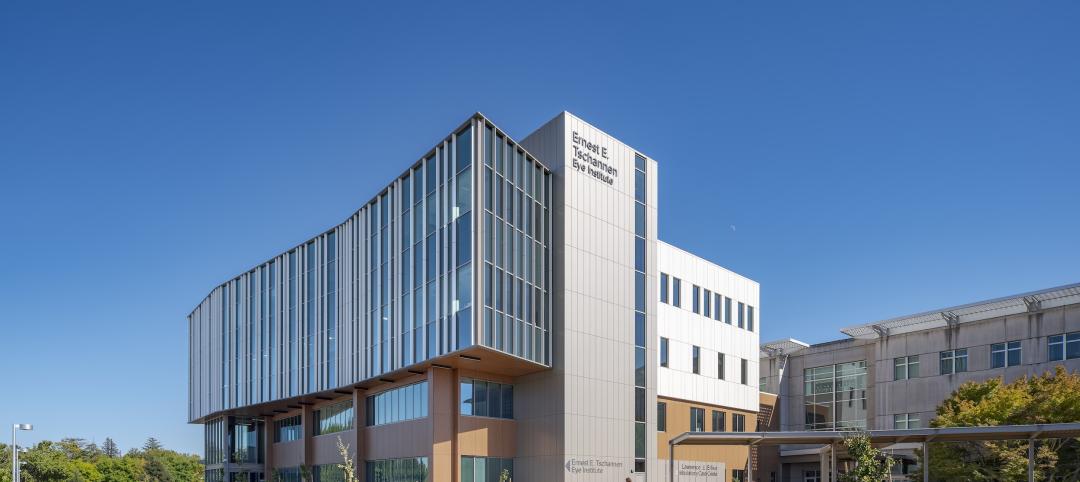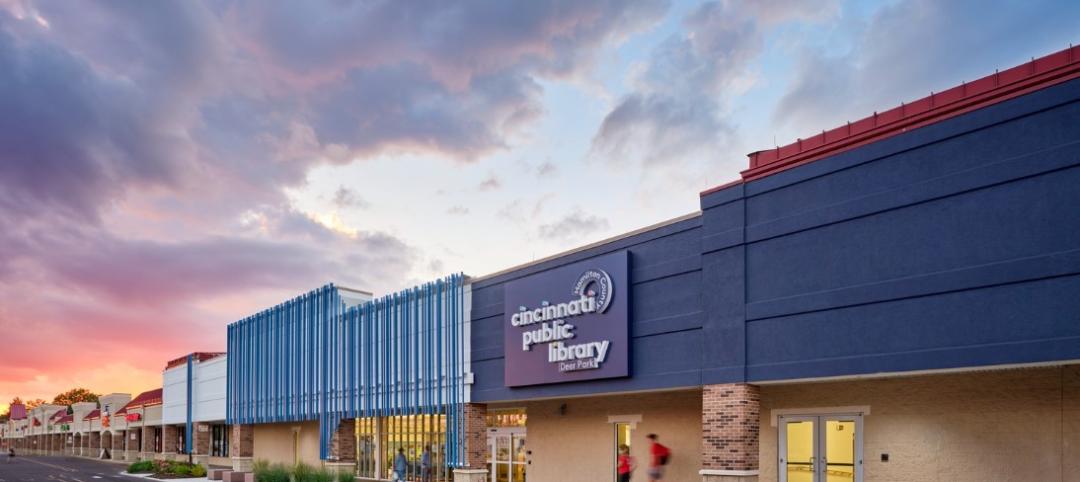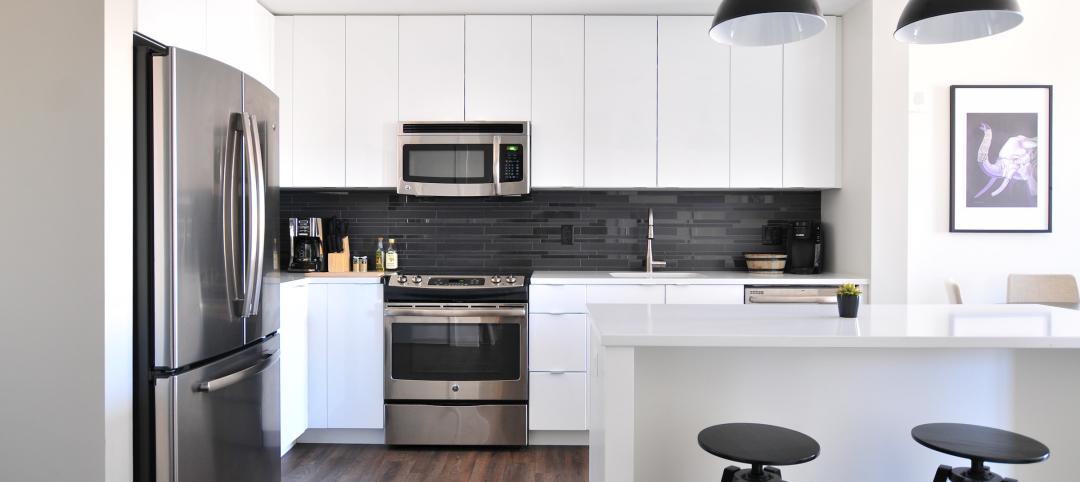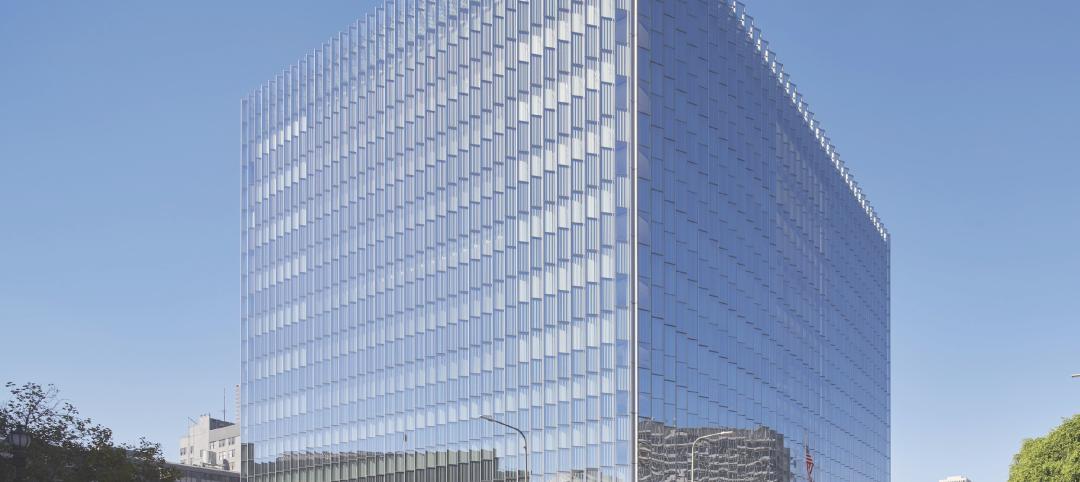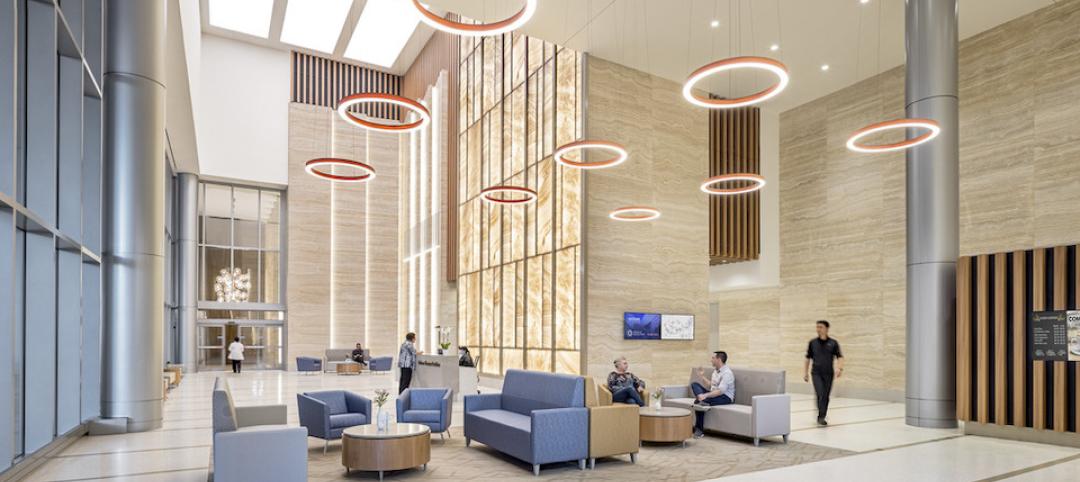While 3D building information modeling (BIM) and digital prototyping have taken away the need for physical shop-built models and created whole new workflows for architects and engineers, clients and authorities with jurisdiction still want physical models to exhibit at planning hearings and show to prospective commercial building tenants or condo unit buyers.
Until recently, most 3D printers cost upwards of $40,000. Burlington, Mass.-based Z Corporation recently introduced the ZPrinter 150 (grayscale only; $14,900) and ZPrinter 250 (CMYK color; $24,900). Compare those prices to Z Corp's own ZPrinter 450, at $45,000.
These new machines are aimed at small architecture studios and firms that want to print their own design iterations to enable closer study of design options while also enhancing communication between project team members and owners. AEC firms can now provide resin-printed 3D color models from any CAD file at greatly reduced cost, due to the lower prices of the latest 3D printers and their associated production materials.
Rather than using polymers or other manufacturing materials, Z Corp's machines use an inkjet printing system based on Hewlett-Packard technology. Here's how it works: A 3D CAD file is imported into the Zeditpro software (included with the printer). The software slices any CAD or BIM file into thin cross-sections and feeds them into the 3D printer. The printer creates the model one layer at a time by spreading a layer of gypsum-based powder and inkjet printing binder into the cross-sections of the model. The process is repeated until every layer is printed.
This is the only 3D printing technology that allows full-color CMYK printing. This method is faster than other additive processes and much, much faster than subtractive prototyping, in which a block of material is carved into shape. Other more costly 3D printing technologies employ either selective laser sintering, which uses heat to fuse metal or plastic elements, or digital light projection, wherein a liquid polymer is exposed to light from a DLP projector under safelight conditions to harden it into a plastic. One printer even uses fused sugar as its printing material.
"Both the ZPrinter 150 and 250 can use any CAD package that can export into the STL file format, and they offer everything the other machines do, just with a smaller package and a little more build time," said Joe Titlow, Z Corporation's VP of product management.
Titlow said the ZPrinter 250 "borrowed a lot" from the ZPrinter 450. "Since the 450 came out in 2007, we've come to understand how to further miniaturize its internal vacuum system, the internal feeder hopper, and its fluid systems, which are self-contained and cartridge-based. All of those technologies have been optimized for this lower-cost package."
One difference between the two generations of printers is that the 250 does not have a side-mounted de-powdering unit with a compressed-air blower, as the 450 does. The resin build material for a 3D model has also gone down in price over the last three years. Powder and binding materials for a Z Corp inkjet-style 3D printer would cost about $3-$5 per cubic inch for a machine owner, according to Impact 3D Models, a Chicago-based 3D modeling company that produces all of its models from a ZPrinter 650. That's down from more than $7 a cubic inch as recently as 2007.
"Everything in the build is variable from project to project," said Matthew Mondo, Impact's VP. "Some models that require more binding material can be more costly, and some shapes require more powder to make." Depending on the complexity of the model, he said, a finished product can run up to $30 per inch, "but it really all depends on what you're looking for."
Mondo said his firm is seeing an uptick in retail layout and MEP modeling work. Clients include TME, a Little Rock, Ark., MEP firm, and construction manager/general contractor Hill International.
Making the file exchange
Three-dimensional geometry is easily transferred from CAD and BIM applications to 3D printers because STL, the file format nearly all of these systems use, is a generic file interchange that many 3D modeling applications can produce and many software packages can consume. Software packages from a wide variety of manufacturers, including AutoCAD, Revit, Solidworks, and Bentley Microstation, can all be easily converted into STL files.
Autodesk has made a free STL exporter for its Revit BIM platform available as a technology preview on its Autodesk Labs testing website. The Revit STL Exporter automates the process of turning a Revit file into an STL file for any of the 2010 Revit family of products (Revit Architecture 2010, Revit MEP 2010, Revit Structure 2010).
Kelcey Lemon, senior technical marketing manager for Building AEC Solutions at Autodesk, said interest in 3D printing among AEC firms is growing, particularly to aid in the visualization and comprehension of design proposal.
Related Stories
Warehouses | Mar 29, 2023
Construction completed on Canada’s first multi-story distribution center
Construction was recently completed on Canada’s first major multi-story industrial project, a distribution center in Burnaby, British Columbia. The project provides infrastructure for last-mile delivery in a world where consumers have come to expect next-day and same-day delivery, according to Ware Malcomb, the project's architect of record.
AEC Innovators | Mar 27, 2023
Leading architecture, engineering firm HED appoints new co-CEOs
As children of immigrant families, Van Herle and Suarez will bring a diverse perspective into a historically underrepresented industry and advance the firm’s mission of creating a positive impact for clients, communities, and the world.
Healthcare Facilities | Mar 26, 2023
UC Davis Health opens new eye institute building for eye care, research, and training
UC Davis Health recently marked the opening of the new Ernest E. Tschannen Eye Institute Building and the expansion of the Ambulatory Care Center (ACC). Located in Sacramento, Calif., the Eye Center provides eye care, vision research, and training for specialists and investigators. With the new building, the Eye Center’s vision scientists can increase capacity for clinical trials by 50%.
Libraries | Mar 26, 2023
An abandoned T.J. Maxx is transformed into a new public library in Cincinnati
What was once an abandoned T.J. Maxx store in a shopping center is now a vibrant, inviting public library. The Cincinnati & Hamilton County Public Library (CHPL) has transformed the ghost store into the new Deer Park Library, designed by GBBN.
Multifamily Housing | Mar 24, 2023
Multifamily developers offering new car-free projects in car-centric cities
Cities in the South and Southwest have eased zoning rules with parking space mandates in recent years to allow developers to build new housing with less parking.
Multifamily Housing | Mar 24, 2023
Coastal multifamily developers, owners expect huge jump in insurance costs
In Texas and Florida, where Hurricane Ian caused $50 billion in damage last year, insurance costs are nearly 50% higher than in 2022.
Multifamily Housing | Mar 24, 2023
Average size of new apartments dropped sharply in 2022
The average size of new apartments in 2022 dropped sharply in 2022, as tracked by RentCafe. Across the U.S., the average new apartment size was 887 sf, down 30 sf from 2021, which was the largest year-over-year decrease.
Government Buildings | Mar 24, 2023
19 federal buildings named GSA Design Awards winners
After a six-year hiatus, the U.S. General Services Administration late last year resumed its esteemed GSA Design Awards program. In all, 19 federal building projects nationwide were honored with 2022 GSA Design Awards, eight with Honor Awards and 11 with Citations.
Transportation & Parking Facilities | Mar 23, 2023
Amsterdam debuts underwater bicycle parking facility that can accommodate over 4,000 bikes
In February, Amsterdam saw the opening of a new underwater bicycle parking facility. Located in the heart of the city—next to Amsterdam Central Station and under the river IJ (Amsterdam’s waterfront)—the facility, dubbed IJboulevard, has parking spots for over 4,000 bicycles, freeing up space on the street.
Healthcare Facilities | Mar 22, 2023
New Jersey’s new surgical tower features state’s first intraoperative MRI system
Hackensack (N.J.) University Medical Center recently opened its 530,000-sf Helena Theurer Pavilion, a nine-story surgical and intensive care tower designed by RSC Architects and Page. The county’s first hospital, Hackensack University Medical Center, a 781-bed nonprofit teaching and research hospital, was founded in 1888.





